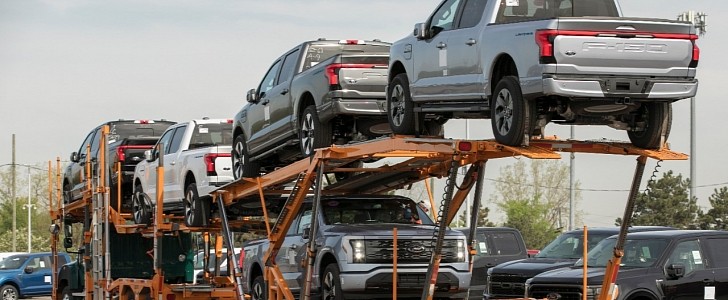It’s pretty obvious already that the chip shortage is here to stay, so in many ways, the world has no other option than to learn to live with it.
On the other hand, most companies have been working non-stop on ways to reduce the disruptions caused by the constrained semiconductor inventory, and carmakers, in particular, have explored all kinds of approaches.
For instance, many have tried to temporarily halt the production even at their largest facilities, while others wanted to keep the manufacturing going so they ended up removing certain non-critical systems from their vehicles.
At the end of the day, everybody was trying to find just the most convenient way to deal with the semiconductor shortage, all while hoping the end of the crisis would be close.
On this front, Ford simply seems to be one of the most optimistic companies. The company’s executives have said on several occasions that the chip inventory would improve in late 2022, and despite all the signals that the struggle could continue for even two more years, the American giant hasn’t updated its forecast.
CEO Jim Farley has recently told shareholders at the annual meeting that the chip shortage would ease in the second half of 2022, revealing the company is also working on multiple approaches to prevent the shortage from taking its toll in such a devastating manner.
But according to Intel, doing this is pretty much impossible because of two different reasons.
First, Intel’s CEO said, the chip shortage would continue until at least 2024, and second, the shortage of equipment required for the manufacturing of semiconductors means companies can’t invest in expanding capacity and, therefore, accelerate the end of the crisis.
Ford, however, is very confident that much better times are just around the corner. And to tackle the limited inventory more effectively, the company is trying to prioritize the production of its most popular and profitable models, meaning that the vehicles that don’t necessarily sell like hotcakes could eventually be hit by even longer waiting times.
For instance, many have tried to temporarily halt the production even at their largest facilities, while others wanted to keep the manufacturing going so they ended up removing certain non-critical systems from their vehicles.
At the end of the day, everybody was trying to find just the most convenient way to deal with the semiconductor shortage, all while hoping the end of the crisis would be close.
On this front, Ford simply seems to be one of the most optimistic companies. The company’s executives have said on several occasions that the chip inventory would improve in late 2022, and despite all the signals that the struggle could continue for even two more years, the American giant hasn’t updated its forecast.
CEO Jim Farley has recently told shareholders at the annual meeting that the chip shortage would ease in the second half of 2022, revealing the company is also working on multiple approaches to prevent the shortage from taking its toll in such a devastating manner.
But according to Intel, doing this is pretty much impossible because of two different reasons.
First, Intel’s CEO said, the chip shortage would continue until at least 2024, and second, the shortage of equipment required for the manufacturing of semiconductors means companies can’t invest in expanding capacity and, therefore, accelerate the end of the crisis.
Ford, however, is very confident that much better times are just around the corner. And to tackle the limited inventory more effectively, the company is trying to prioritize the production of its most popular and profitable models, meaning that the vehicles that don’t necessarily sell like hotcakes could eventually be hit by even longer waiting times.













